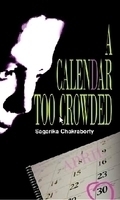What do you think?
Rate this book


183 pages, Paperback
Sagarika Chakraborty is a lawyer and student at ISB. Her début book is “a collection of stories and poems woven around the theme of womanhood”. Throughout the year there are a few dozen days set apart for women and issues surrounding gender. As is usual, we hear a lot about these issues on the special days and then go back to routine stories for the rest of the year. She outlines her purpose in the introduction:
The attempt is to delve deeper and analyse whether it is merely enough to rely on statistics and be complacent in the knowledge that the numbers indicate a better society in the making, or whether there is an urgent need to look beneath the covers and realize that despite all such dedicated days, there are 300 days when there is nothing special that life has to offer.
The first story is narrated by a girl who has been blamed for everything that went wrong in the lives of people around her, right from when she was in her mother’s womb. At the end of the story, there is just no way not to feel immensely sad about how women are blamed all around us for anything that goes wrong around them.
I kept reading on and half way through the 3rd story it stuck me; I’ve read these stories before. Every single one of them. In fact, most of what I’ve heard about women in India are these stories.